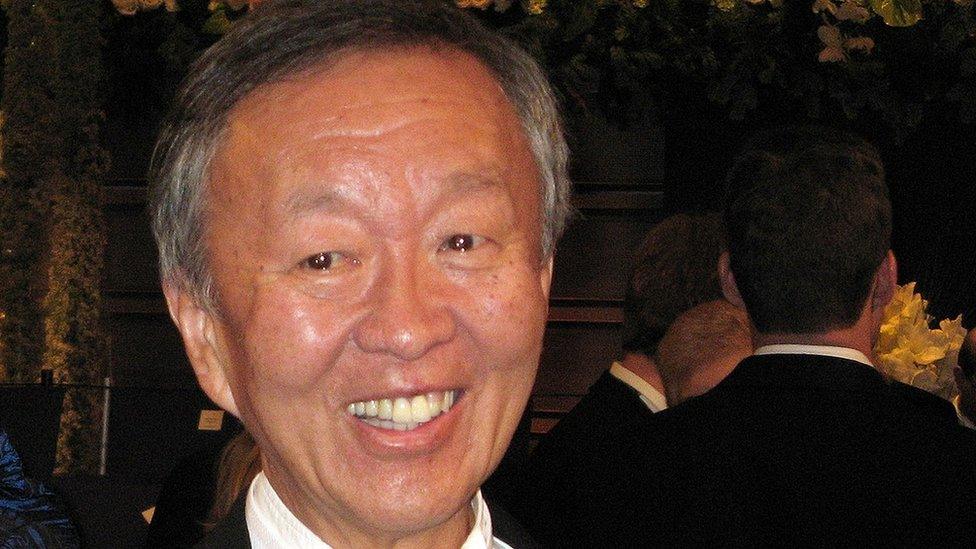Sir Charles Kao: Fibre optics genius passes away
- Published

Sir Charles Kao receiving an Honorary Doctorate of Science from University College London (UCL) in 2010
Tributes have been paid to Sir Charles Kao, the scientist whose work in Essex "transformed the world".
Sir Charles, who won the 2009 Nobel Prize for Physics, died in Hong Kong on Sunday, aged 84.
In the 1960s, he worked at Standard Telephones and Cables in Harlow and it was here that he laid the groundwork for fibre optics, making inventions such as the internet possible.
Harlow Museum's David Devine called Sir Charles "the father of fibre optics".
The electrical engineer, who was born in Shanghai on 4 November 1933, moved to the UK to study electrical engineering at Woolwich Polytechnic (now the University of Greenwich).
At the time he was employed in Harlow, he was working towards his PhD.
'Backbone for the internet'
In 1966, Sir Charles realised that optical fibres made from high-purity glass could be used to transmit light signals over long distances.
He then identified silica as a "crucial material" for developing fibre optic communications.
"What Kao did in Harlow transformed the world and provided a backbone for the internet," Mr Devine said. "He was the father of fibre optics."
In 2009, Sir Charles shared the Nobel Prize for Physics with Willard Boyle and George Smith and the following year he was knighted.
With the help of his wife Gwen, he also founded the Charles K Kao Foundation for Alzheimer's Disease after being diagnosed with the condition in 2004.
Will Stewart from the Institute of Engineering and Technology said Sir Charles's work was "hugely important".
Speaking from a fibre optics conference in Rome, where 8,000 people held a minute's silence for Sir Charles on Tuesday, Mr Stewart said the scientist's findings "changed everything".
"He really enabled modern life," he said. "All the communications we use - from mobile phones to the internet - are down to Charlie Kao's fantastic observations.
"Without him, the world would be a very different place."
- Published13 December 2017

- Published31 March 2015

- Published15 October 2010